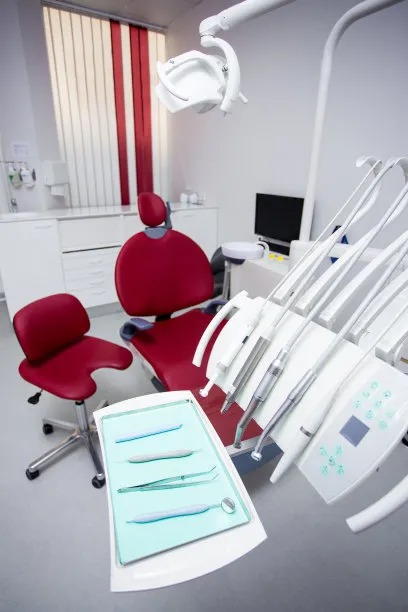Summary: The extraction of a tooth is a critical procedure in maintaining overall dental health and preventing future oral issues. This article explores the significant reasons why tooth extraction may be necessary, focusing on four key aspects: the prevention of tooth decay, alleviation of overcrowding, reduction of gum disease, and the mitigation of pain. Each aspect encompasses various factors that highlight the importance of addressing dental problems in a timely manner. By understanding these factors, patients can appreciate how effective tooth extraction can lead to healthier smiles and enhance their overall well-being. Through a detailed examination of these elements, the article underscores the necessity of maintaining dental health through the appropriate course of action.
1. Prevention of Tooth Decay

Tooth decay is a pervasive issue that affects millions of people. When a tooth decays to a certain extent, extraction may become the only viable option to prevent further complications. Leaving a decayed tooth untreated can lead to severe pain and subsequent infections, making extraction a necessary intervention.
Furthermore, extracting a decayed tooth can help protect the adjacent teeth from suffering the same fate. Decay can spread, affecting nearby teeth and leading to a larger dental problem. By removing the affected tooth, we can halt the progression of decay and safeguard the surrounding oral structure.
Moreover, tooth extraction can pave the way for corrective dental procedures. After removing a decayed tooth, patients often opt for dental implants or bridges, which can restore functionality and aesthetics in the mouth. This preventive measure not only retains one’s smile but also ensures that oral health is prioritized for the future.
2. Alleviation of Overcrowding
Overcrowding is another significant reason why tooth extraction may be necessary. When the mouth has limited space, it can impede proper alignment of teeth, leading to orthodontic issues. In such cases, extraction of one or more teeth can provide the necessary space for alignment.
In addition, overcrowding can make oral hygiene more challenging. When teeth overlap, it becomes difficult to clean effectively, creating a breeding ground for plaque and bacteria. Extracting teeth that are unnecessary can simplify dental care, promoting better hygiene practices.
Moreover, this alleviation of overcrowding can lead to improved confidence. With a properly aligned smile, individuals are more likely to feel good about their appearance, contributing positively to their mental and emotional health.
3. Reduction of Gum Disease
Gum disease is a serious condition that can have significant repercussions on overall health. One of the primary ways to combat advanced gum disease, such as periodontitis, is through tooth extraction. When teeth become severely affected and cannot be salvaged, removing them can prevent the spread of infection to the gums and surrounding structures.
By extracting problematic teeth, the remaining gum tissue has a better chance of healing and recovering. This not only supports oral health but also reduces the risk of systemic health issues, as research indicates that gum disease can be linked to conditions like heart disease and diabetes.
Furthermore, after extracting teeth with gum disease, a dental professional can implement a treatment plan tailored to restoring gum health. This might include deep cleaning or other therapeutic measures designed to maintain healthy gums and prevent future disease.
4. Mitigation of Pain and Discomfort
Chronic pain is one of the most challenging dental issues a person can face. Teeth that have sustained damage, infection, or decay often lead to persistent discomfort that can disrupt daily life. In these circumstances, tooth extraction can provide immediate relief.
Moreover, removing a problematic tooth can lead to a decrease in the need for more invasive and often more painful procedures. While initial discomfort may occur post-extraction, the long-term benefits often outweigh the temporary pain experienced during the recovery phase.
Finally, alleviating pain through extraction can often lead to an improved overall quality of life. Patients can resume normal activities without being hampered by discomfort, and they can approach dental health with renewed vigor, committing to preventive practices that ward off future problems.
Summary:
The necessity of extracting a tooth underscores its importance in preventing complications and promoting overall dental health. Each reason discussed illustrates a vital aspect of maintaining a healthy smile and preventing future oral issues. By addressing tooth decay, overcrowding, gum disease, and pain, individuals can make informed decisions regarding their dental care.
This article is compiled by Vickong Dental and the content is for reference only.
Vickong Dental
Vickong Dental is a large medical group established in Hong Kong in 2008 by professors from well-known medical universities in Guangdong and Hong Kong, as well as medical doctors from key national '985' universities (including Master's supervisors and senior professors). The chain of branches brings together expert dentists with PhDs and Master's degrees from Hong Kong and Mainland China, committed to providing high-quality dental treatment.
"Vickong Dental Practices the University Motto of 'Healing and Serving Society,' with a Stable Operation for Sixteen Years. It Has Been honored with Hong Kong Enterprise Leaders's Choice,' and is a Global Trusted Implant Center for the Nobel Implant System. Recommended by Hong Kong Metro Broadcast and Guangdong Television, it Serves Customers from Over Thirty Countries and Regions, Gaining the Trust and Favor of Citizens from the Guangdong-Hong Kong-Macau Greater Bay Area and Surrounding Cities.

Thousands of customers' unanimous praise
The most recognized and highly recommended dental service by customers in the Guangdong-Hong Kong-Macau Greater Bay Area
We Ensure You Receive Detailed Care and Attention Here
Hong Kong standards, Shenzhen prices, Your Trusted English-speaking dentists

Vickong Dental Medical-Grade Instrument Disinfection Process
Vickong Dental Medical-Grade Instrument Disinfection Process

Vickong Dental Chain: A Warm and Comfortable Environment for Treatment






Appointment Hours

Q&A
Why choose Vickong Dental?
Vickong Dental practices the university motto 「Medicine to Benefit Society」, with each branch bringing together highly qualified dentists with doctoral and master’s degrees from Hong Kong and the Mainland, and has maintained seventeen years of steady operation。Recipient of 「2024 Hong Kong Enterprise Leaders Brand」, 「2025 Hong Kong Enterprise Leaders Brand」, a Nobel Biocare Global Trusted Implant Center, and a brand recommended by Metro Radio Hong Kong and Guangdong TV。
To date, we have served customers from more than thirty countries and regions,earning exceptionally high word-of-mouth recognition and trusted recommendations from residents across the Guangdong-Hong Kong-Macao Greater Bay Area and surrounding cities
We have eight major branches in Zhuhai、Shenzhen,and a consultation and service assurance center in Hong Kong,so you can book a free consultation at any time for any questions,which is very reassuring.
If I do not accept the quotation after the CT scan, will I be charged??
No! As long as the actual treatment has not started, you will not be charged any fees.
Will there be any additional charges during the treatment process?
No, there won’t be any additional charges. Before treatment begins, we will clearly explain the treatment plan and its corresponding fees. Only after the patient agrees and signs the consent form will we proceed with the dental service.
Can I pay in Hong Kong dollars?
Yes. Vickong Dental accepts payment in Hong Kong dollars. The amount will be converted based on the exchange rate of the day, and the applicable rate will be clearly communicated to you in advance.
Can I reschedule my appointment at any time?
Yes. Please contact us via **WeChat** or **WhatsApp** as early as possible, providing your original appointment time and details, along with your preferred new date and time slot for rescheduling.













